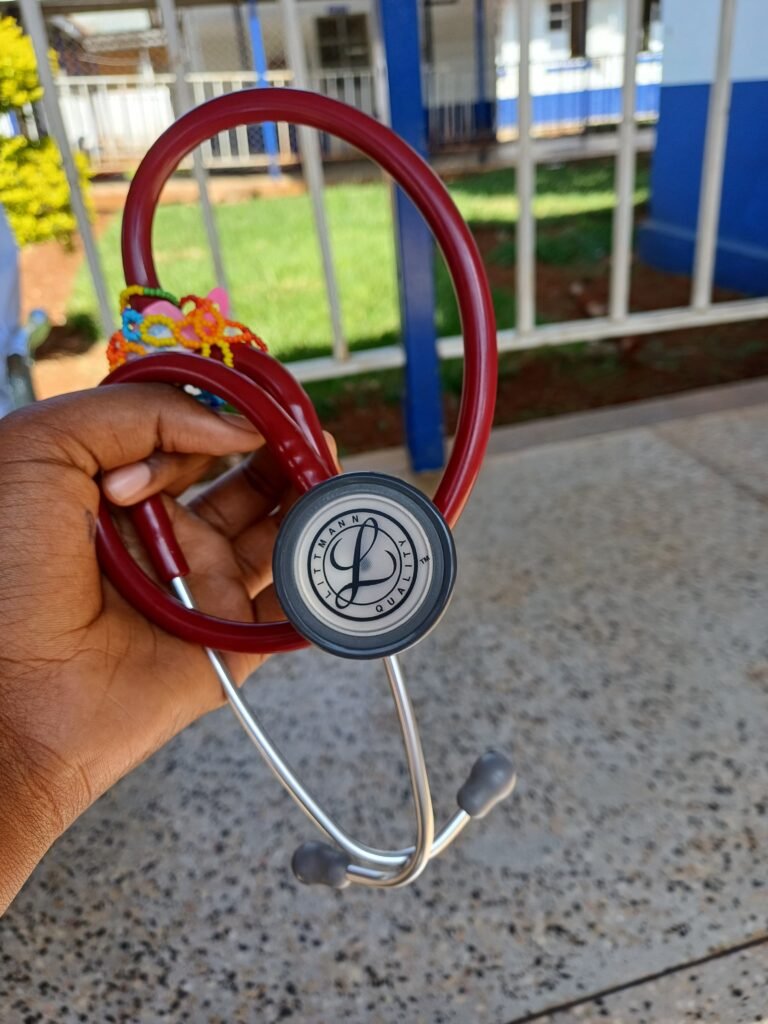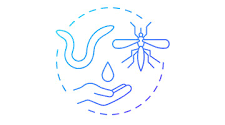I have a confession. I did not choose to study medicine. Well, technically, I did. Kind of. Allow me to explain.
Like many other young children, I floated between endless possibilities of what I wanted to be when I grew up. A teacher, a dancer, a chef, nothing was out of my mind’s reach. If I saw it on TV and it looked awesome, I wanted it. My mother jokingly tells me that at some point, I proudly proclaimed that I wanted to become a police officer. I must have been inspired by the action-packed movies I loved and enjoyed. Much to my parents’ relief, this dream came and passed like the others. Soon enough I was fantasizing about becoming something different.
As I went through primary school, I naively thought that the subjects I was strong in would dictate my future. If mathematics, I would become a banker. If science, a doctor of course. I thought my career path would come naturally to me, that I would be called into my profession like a nun is called to the habit.
However, when I finished high school, I was yet to receive my ‘calling’. Fortunately, I completed my end-of-secondary school exams successfully. I was then presented with a wide range of courses to choose from for my undergraduate education. Just like when I was younger, my imagination limitless, the world was once again my oyster. I was unsure of what I would become, but I knew I wanted to work in a career that provided job security, a stable income, and the opportunity to impact people’s lives positively. With some encouragement from my advisors and my own perceived notions of the field, a bachelors degree in medicine and surgery seemed like a great and suitable choice.
Interestingly, I had almost no real-life experience in the medical field. Exempt from this were a few instances in my childhood when I was down with a serious flu or some other minor ailment. There are no medical doctors in my family, nor did I know anyone in the medical field personally. Looking back, I find it amusing that it did not even occur to me to explore the vast world of medical shows. They might have offered me a rough idea of what I was getting myself into, albeit unrealistic. Instead, I was drawn to medicine by the opportunities it offered—to uplift my family and use my knowledge to ease human suffering. It also came with the perk of adding the prefix “Dr.” to my name, which I have to admit, really appealed to me. I was diving headfirst into the deep end, and I didn’t even know it.
One of my most vivid memories in medical school is taking my gross anatomy classes in the first and second years. I remember walking into the class the first time, a large brightly lit room with rows of white tables and wooden-top stools arranged neatly facing the front of the class where there was a large whiteboard ready for lectures. This quaint setup occupied only the front half of the room. The second half was what commanded my attention. There were about ten tables, each holding cadavers covered with a plastic sheet that we would use for our gross anatomy dissection exercises. The air was thick and smelled strongly of formaldehyde, a sharp sour smell that I would get accustomed to over time. It was unsettling at first, but this fear was soon overcome with excitement, eagerness, and gratitude to learn all there was about the human body from our wizened professors and textbooks.
As time went on, I quickly learned that this initial burst of wonder and amazement was not enough to sustain my efforts in medical school. Once the rose-coloured glasses came off, I was faced with the reality of what lay ahead of me. I was overwhelmed by the amount of new and unfamiliar knowledge I was required to learn. It truly felt like I was drinking from a fire hose. I was soon overcome with feelings of self-doubt and the fear of failure. I was fortunate to be in a class full of brilliant minds, and their conversations about the noble reasons why they had chosen to do medicine both inspired me and intimidated me. This left me questioning my motivations.
What followed in the next couple of years was a war within myself, me against me, tearing myself down in one moment only to build myself back up in the next. I went through cycles of: “I don’t think I deserve to be here.” “Everyone is doing so much better than me.” “Should it really be this hard if I’m in the right place?” And then, paradoxically, “This is awesome! I am so grateful to be doing this.”
I quickly realised that I needed to re-examine my motivations for becoming a medical doctor. I needed to explore a deeper purpose, one that was not self-serving but encouraged me to use my experiences to give back to the world. I remember going through a version of the five stages of grief; denial, anger, bargaining, depression, and finally acceptance of the choice I had made. I found myself mourning what I thought I should have been, could have been, and would have been if I had chosen a different path in life. With time, I moved towards acceptance and, surprisingly, gratitude.
I slowly began to appreciate all that I gained from choosing to stay on this path. I have a once-in-a-lifetime opportunity to learn about the workings of the human body, what happens in disease, and what I can do to help. I have interacted with patients with varying degrees of illness. I have learned how to give them hope and assist them in small ways to make their experiences more bearable. I have been blessed to interact with mentors and doctors who are global trailblazers in various aspects in healthcare. I have had the privilege to be on the receiving end of their teachings. I have been greatly inspired to show up as my best self for my patients. I have made the most wonderful friends, whose friendship has gone beyond the hospital and classroom and extended into my personal life. I share with them this wonderful experience of being alive, showing up for special days, bad days and everything in between. They remind me that I am not alone in my experience.
I have also learnt important life and professional skills, from bedside procedures and examinations, carrying out research, clinical reasoning, teamwork, communication, critical thinking, and innovation to mention a few. Most of all, I have showcased to myself a level of resilience I was not aware I was capable of. I have learned to embrace the challenges that come with the experience of learning and practising medicine. In the darkest moments, when I felt on the brink of giving up, I found a strength within me that I never knew existed. That, in itself, has been a profound lesson.
I am still in the process of clearly defining my motivations in medicine. However, they have become more outward-facing, focused on what I can contribute rather than what I can gain. Even as I am still in the early stages of my career, I am excited to keep exploring and redefining my purpose in medicine.
To any medical student questioning their place in medicine, I understand and empathise that purpose is not always clear from the start. Sometimes, it is forged through experience, resilience, and self-discovery. Keep going, you may surprise yourself with how much you can overcome!



